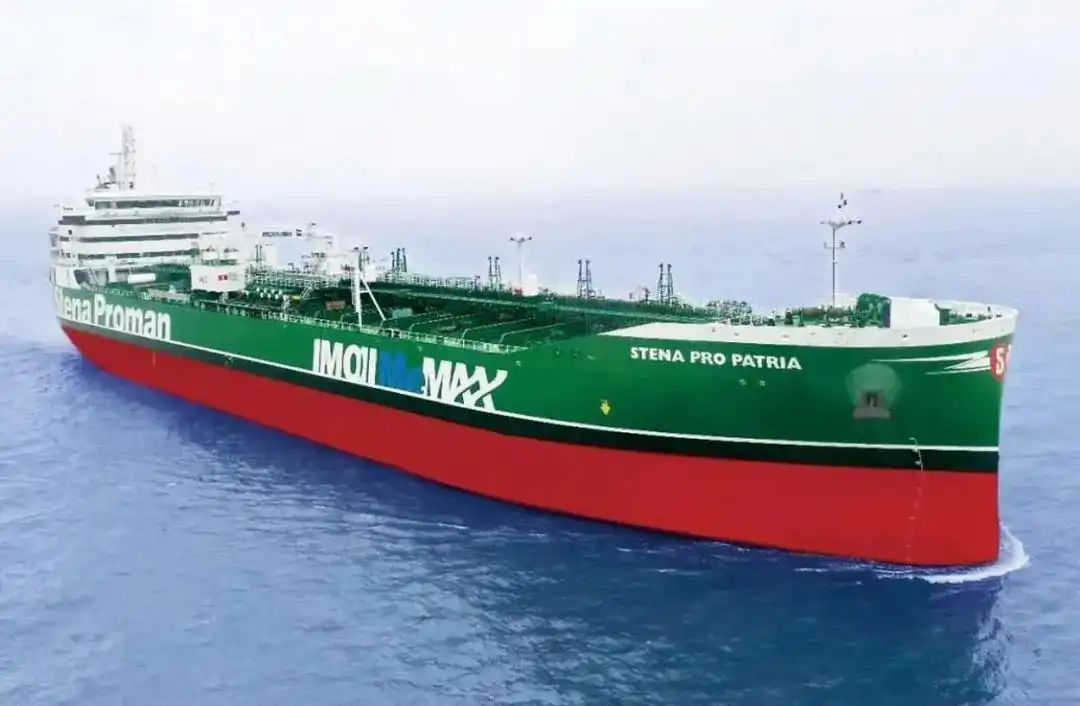Sustainable maritime fuels may be at the same price as fossil fuels by 2035, and cost competitiveness is expected to increase
It is predicted that the competitiveness of sustainable fuel costs is expected to increase significantly, and that by 2035, sustainable maritime fuel costs may be at the same price as fossil fuels.

Recently, the International Maritime Organization issued a public statement saying that it has reached an agreement on the draft "IMO net-zero framework" aimed at reducing greenhouse gas emissions from the international shipping industry, and may propose new maritime fuel standards and greenhouse gas emission pricing mechanisms. It is predicted that the competitiveness of sustainable fuel costs is expected to increase significantly, and that by 2035, sustainable maritime fuel costs may be at the same price as fossil fuels.
Time is running out for decarbonization of the shipping industry
The International Maritime Organization said that the draft "IMO Net Zero Framework" clarifies two emission reduction paths:The first is to formulate maritime fuel standards on a global scale to reduce the intensity of greenhouse gas emissions during the use of maritime fuel; the second is to establish a pricing mechanism to stimulate the industry to achieve net zero emissions.
The draft net-zero framework is seen as the main measure to achieve a decarbonization strategy for the maritime industry. In July last year, the Maritime Environmental Protection Committee of the International Maritime Organization released the latest greenhouse gas decarbonization strategy for the international shipping industry, proposing goals such as improving the energy efficiency of marine fuels and reducing the carbon dioxide emission intensity of shipping work, and expressed the need to make the international shipping industry a greenhouse gas as soon as possible. Gas emissions have peaked, and the net-zero emission target will be achieved by 2050, taking into account different national conditions.
The shipping industry is responsible for about 80% of the world's trade and transportation tasks and has huge economic benefits, but its greenhouse gas emissions problem cannot be underestimated. The latest "2050 Sustainable Marine Fuels" research report (hereinafter referred to as the "Report") released by Finnish power system manufacturer Wartsila shows that the annual greenhouse gas emissions of the shipping industry account for about 2% of the global total greenhouse gas emissions. If not controlled, its greenhouse gas emissions may increase by 45% by 2050, and the international shipping industry is facing huge pressure to reduce emissions.
According to the plan of the International Maritime Organization, the organization will negotiate with representatives of various countries in the next six months to finalize the main measures and relevant details of the decarbonization strategy. If the implementation is smooth, the emission reduction measures proposed in the draft framework will be officially launched in 2025., fully implemented by 2027.
Cost issues are still troubling
However, from the industry's perspective, due to the different national conditions of various countries, specific policy measures still need more discussion, and it is not easy to reach agreement on key details within a few months.
Cost is one of the main challenges plaguing the decarbonization of the shipping industry 。从报告规划的可持续燃料发展路径来看,当前,液化天然气市场相对成熟,可以替代更高污染的柴油等燃料;随着生物基燃料产能增长,生物基燃料或将在2030年前发挥降碳作用;而面向未来,利用碳捕捉与封存技术生产的氨燃料、甲醇等“蓝色燃料”预计将接续替代;在可再生能源装机量持续扩大的情况下,绿色合成燃料或将在2040年前后实现规模化生产,成为最新一代解决方案。
However, data shows that judging from the above sustainable fuel options, by 2030, the cost of these fuels may still be three to five times the current cost of traditional fossil fuels. For shipowners, high costs and uncertain future may restrict them from taking decarbonization measures.
At the same time, the report added that current decarbonization solutions in the shipping industry include improving fuel efficiency and reducing fuel consumption, but these measures can achieve an emission reduction effect of about 27%. To achieve net zero emissions, sustainable fuel substitution is indispensable. But to promote the development of sustainable fuels, the maritime industry must not only expand its production scale, but also build the infrastructure needed to replace fuels. According to World Bank estimates, the shipping industry will still need US$1 trillion to US$3.7 trillion in investment to achieve net-zero emissions by 2050.
Collaboration of multiple initiatives may be key
According to Roger Holm, executive vice president of Wärtsila, achieving net-zero emissions in the shipping industry by 2050 requires all tools, including sustainable fuels, and the international shipping industry must focus on coordinating policymakers, industries and operators. Action between operators provides systemic changes to produce sustainable fuels quickly and economically.
In addition to collaboration from all walks of life, adopting corresponding measures to improve the cost competitiveness of sustainable fuels is also the key. 。报告认为,国际海事组织制定船用燃料碳定价标准和船用燃料排放标准的计划将显著降低可持续燃料和化石燃料的价格差异。以欧盟为例,如果碳定价和燃料标准顺利推进,结合欧盟碳市场规范,到2030年化石燃料可能会因高昂“碳税”而成本翻番,到2035年可持续燃料成本将首次降到与化石燃料同价。
In addition, the report also pointed out that upgrades of marine power systems should also be accelerated. Estimates suggest that for shipowners, if energy efficiency can be increased by 5%-10%, a fleet of a certain size can save about US$750 million per year by 2030.
It is understood that the shipping industry chain has already begun to take action to continue to provide momentum for the development of sustainable fuels. In October last year, the Port of Rotterdam, an important European port, announced that it would waive port charges for ships using sustainable fuels, and provide corresponding discounts to ships using low-carbon fuels such as green methanol and ammonia, up to 500,000 euros.
Simmons, chief operating officer and CEO of the Port of Rotterdam, believes that although the industry has established a "zero-emission shipping buyer alliance" and is willing to pay a premium for shipping companies using zero-emission fuels, sustainable fuel prices are still more expensive than traditional fuels. To this end, it is hoped that the port will provide greater incentives for shipowners and stimulate shipowners to transition to net-zero emissions.

